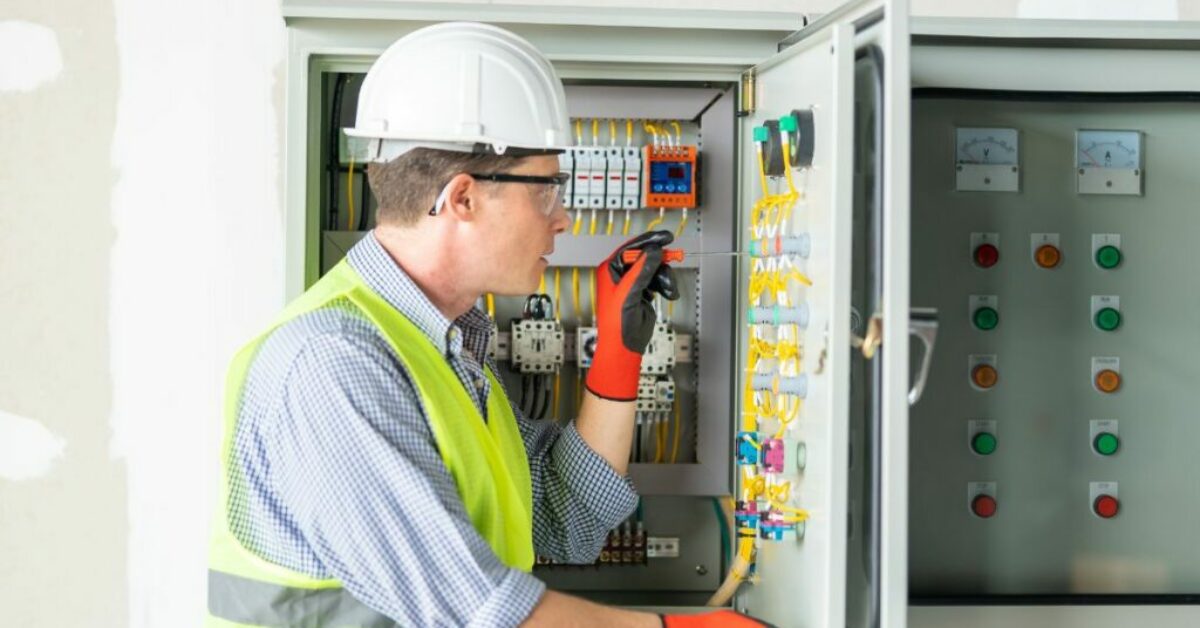How To Become An Electrician?
Steps To Becoming An Electrician
Electricians are skilled tradespeople who install, maintain, and repair electrical systems in buildings and other structures. Becoming an electrician requires a combination of formal education, on-the-job training, and licensing requirements. Below are the steps to follow for becoming an electrician:
- Research the requirements:
Before considering a career as an electrician, it’s important to research the requirements in your state. Contact the local licensing board or regulatory agency to find out the education, training, and licensing requirements needed to become an electrician.
- Earn a high school diploma:
To become an electrician, you need to have a high school diploma or equivalent. While in high school, focus on courses such as math, physics, and electrical technology to build a strong foundation for your future career.
- Complete an apprenticeship program:
Apprenticeship programs typically last four years and consist of on-the-job training and classroom instruction. During the apprenticeship, you’ll work with experienced electricians to gain practical experience and knowledge of electrical systems and equipment.
- Get licensed:
In most states, electricians are required to be licensed. The licensing requirements vary by state, but generally, you need to pass an exam and meet specific education and experience requirements.
By following these steps, you can become a licensed electrician and start your career in this rewarding field.
Skills Needed For Becoming An Electrician
Becoming an electrician is a challenging but rewarding career choice. It requires a combination of technical knowledge and practical skills. Below are some of the essential skills needed for a successful career as an electrician:
- Problem-solving skills: As an electrician, you’ll often face challenges and problems that require quick solutions. For example, you may need to troubleshoot faulty wiring or find the source of a power outage. You need to be able to analyze situations and come up with effective solutions. Being able to think on your feet and adapt to changing circumstances is also important.
- Attention to detail: Electrical work requires precision and accuracy. You need to have a keen eye for detail to ensure that your work is done correctly. For example, you need to be able to read and interpret blueprints and schematics accurately. You also need to be able to measure and cut wires precisely to ensure that they fit into the correct terminals.
- Physical fitness: Electricians often work in physically demanding environments, such as construction sites and outdoor areas. You need to be physically fit to handle the demands of the job. For example, you may need to climb ladders or work in confined spaces. You also need to be able to lift heavy equipment and materials.
- Communication skills: As an electrician, you’ll interact with clients, contractors, and other tradespeople on a daily basis. You need to be able to communicate effectively to ensure that everyone is on the same page. For example, you need to be able to explain technical concepts to non-technical people. You also need to be able to work collaboratively with other tradespeople to ensure that projects are completed on time and to a high standard.
However, these are not the only skills that are required to become a successful electrician. Other important skills include:
- Time management skills: Electricians often work on multiple projects at the same time. You need to be able to manage your time effectively to ensure that you meet deadlines and complete projects on time.
- Customer service skills: As an electrician, you’ll often be working in people’s homes or businesses. You need to be able to provide excellent customer service to ensure that your clients are satisfied with your work.
- Continuous learning: The electrical industry is constantly evolving, with new technologies and regulations emerging all the time. You need to be committed to continuous learning to ensure that you stay up-to-date with the latest developments in the industry.
- Business skills: If you plan to run your own electrical contracting business, you’ll need to have business skills such as marketing, accounting, and project management. These skills will help you to run your business efficiently and effectively.
By developing these skills, you’ll be well-prepared for a successful career as an electrician. Whether you work for an electrical contracting company or run your own business, you’ll be able to provide high-quality electrical services to your clients and make a positive impact in your community.
What is An Electrician?
An electrician is a skilled tradesperson who specializes in the installation, maintenance, and repair of electrical systems in buildings and other structures. Electricians work in a variety of settings, including homes, commercial buildings, and industrial facilities.
Electricians are highly trained professionals who must complete both classroom and on-the-job training in order to become licensed. They are responsible for ensuring that electrical systems are installed and maintained safely, and that they comply with local and national electrical codes.
When installing electrical systems, electricians must carefully plan the layout of wiring and electrical components to ensure that they are installed in the most efficient and effective way possible. They must also be able to read and interpret blueprints and technical diagrams in order to properly install electrical systems.
In addition to installation, electricians are also responsible for the maintenance and repair of electrical systems. This includes diagnosing and troubleshooting electrical problems, replacing faulty components, and ensuring that all electrical systems are functioning properly.
Electricians play a critical role in maintaining safe and functional electrical systems in buildings and other structures. They are responsible for ensuring that electrical systems are installed and maintained to the highest standards, and that they are functioning properly at all times. Without electricians, our modern world would not be possible.
The Benefits of Working as An Electrician
There are many benefits to working as an electrician. Below are some of the most significant:
- High demand: The demand for skilled electricians is currently high and is projected to continue growing in the coming years. This means that electricians are in high demand and can expect to have job security.
- Good pay: Electricians earn a competitive salary, and the pay scale can increase as you gain more experience and knowledge in the field.
- Variety of work: Electricians work in a variety of settings, which means that there is never a dull moment. You’ll have the opportunity to work on different projects and gain new experiences.
- Job satisfaction: Electricians have the satisfaction of knowing that they are making a positive impact on people’s lives by ensuring that electrical systems are safe and functional.
However, the benefits of working as an electrician don’t stop there. Let’s take a closer look at some of the other advantages:
1. Flexibility
Electricians have the flexibility to work in a variety of different industries, including construction, manufacturing, and maintenance. This means that you can choose to specialize in a particular area that interests you, or you can work in a more general capacity. Additionally, electricians have the option to work as independent contractors, which can provide even greater flexibility in terms of scheduling and workload.
2. Job Security
As previously mentioned, the demand for skilled electricians is high and is projected to continue growing. This means that electricians can expect to have job security, even during times of economic uncertainty. Additionally, electricians who are willing to travel or work in remote locations may find even greater job security and higher pay rates.
3. Skill Development
Working as an electrician provides ample opportunities for skill development and career advancement. As you gain experience, you can specialize in a particular area, such as industrial or residential electrical work. Additionally, electricians can pursue additional certifications and training to expand their knowledge and skill set.
4. Community Impact
Electricians play a critical role in ensuring that homes, businesses, and public spaces have safe and functional electrical systems. This means that electricians have the opportunity to make a positive impact on their communities by keeping people safe and ensuring that essential services are available. Additionally, electricians may have the opportunity to work on projects that promote sustainability and energy efficiency, which can have a broader positive impact on the environment.
Overall, working as an electrician can be an excellent career choice for those who enjoy working with their hands, solving complex problems, and making a positive impact on their communities. With high demand, good pay, and ample opportunities for skill development and career advancement, becoming an electrician can provide a fulfilling and rewarding career path.




